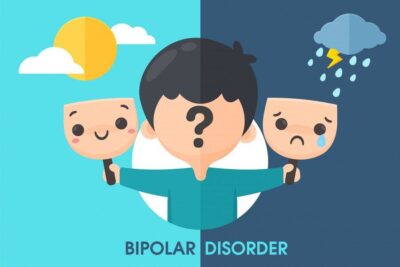Is Your Child Bipolar?
As a parent, it’s natural to worry about your child’s mental health and wellbeing. With the increasing prevalence of childhood mental health issues, it’s essential to be aware of the signs and symptoms of bipolar disorder, a condition that can affect children and young people.
What is Bipolar Disorder?
Bipolar disorder, also known as manic depression, is a mental health condition that affects a person’s mood, energy, and ability to function. It is characterized by episodes of mania or hypomania (elevated mood) and depression. In children, the symptoms of bipolar disorder can be more challenging to diagnose, as they may be similar to those of attention deficit hyperactivity disorder (ADHD) or other conditions.
Signs and Symptoms of Bipolar Disorder in Children
Children with bipolar disorder may exhibit a range of symptoms, including:
– Mood swings: rapid changes in mood, from extremely happy to extremely sad or irritable
– Manic episodes: periods of high energy, agitation, or excitement
– Depression: feelings of sadness, hopelessness, or despair
– Irritability: increased sensitivity to criticism or minor annoyances
– Sleep disturbances: difficulty sleeping or insomnia
– Changes in appetite: increased appetite or loss of appetite
Common Misconceptions About Bipolar Disorder in Children
There are several common misconceptions about bipolar disorder in children that can make diagnosis and treatment more challenging:
– Myth: Bipolar disorder is rare in children. Reality: Bipolar disorder affects approximately 1% of children and adolescents.
– Myth: Bipolar disorder is just like adult bipolar disorder. Reality: Children with bipolar disorder may experience different symptoms and may not develop full-blown mania or depression.
– Myth: Children with bipolar disorder are always hyperactive or aggressive. Reality: While some children with bipolar disorder may exhibit these symptoms, others may appear more subdued or withdrawn.
How to Support Your Child
If you suspect that your child may be experiencing symptoms of bipolar disorder, it’s essential to seek professional help from a qualified mental health professional. Here are some ways to support your child:
– Educate yourself: learn about bipolar disorder and its treatment options
– Encourage open communication: talk to your child about their feelings and experiences
– Develop a treatment plan: work with your child’s healthcare provider to develop a treatment plan that includes therapy, medication, or a combination of both
– Provide emotional support: offer emotional support and validation to your child
Conclusion
Bipolar disorder in children is a complex condition that requires a comprehensive approach to diagnosis and treatment. By being aware of the signs and symptoms, dispelling common misconceptions, and providing support to your child, you can help them manage their condition and achieve a better quality of life.
Remember, every child is unique, and what works for one child may not work for another. If you’re concerned about your child’s mental health, consult with your child’s healthcare provider or a qualified mental health professional for guidance and support.
References:
https://www.nimh.nih.gov/health/publications/bipolar-disorder-in-children-and-teens
https://www.ncbi.nlm.nih.gov/pmc/articles/PMC4348006/
https://www.cdc.gov/childrensmentalhealth/features/mental-health-children-and-parents.html
Websites:
Britmed Healthcare: https://britmedhealthcare.co.uk/
Nightingale Hospital: https://www.nightingalehospital.co.uk/
Top Doctors: https://www.topdoctors.co.uk/doctor/ahmed-el-missiry
You can also book, Contact us on WhatsApp 08009708017




